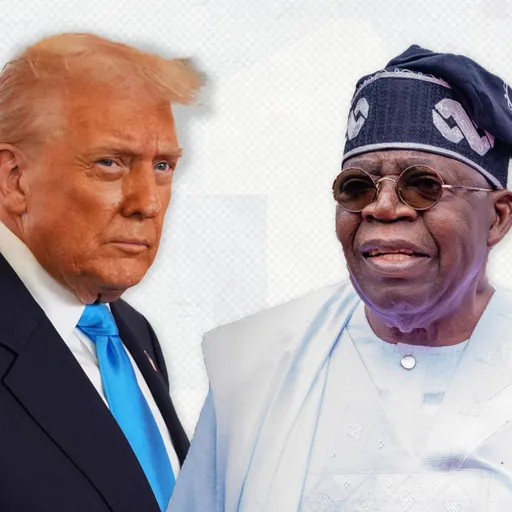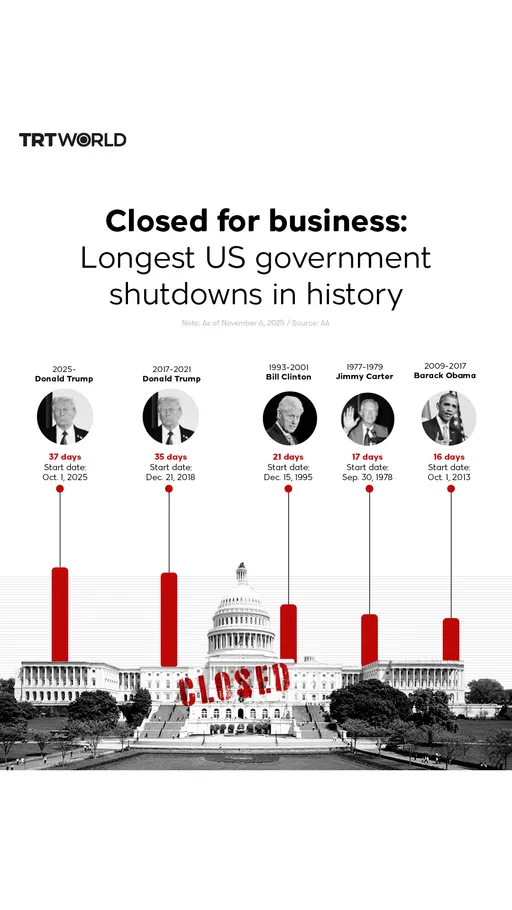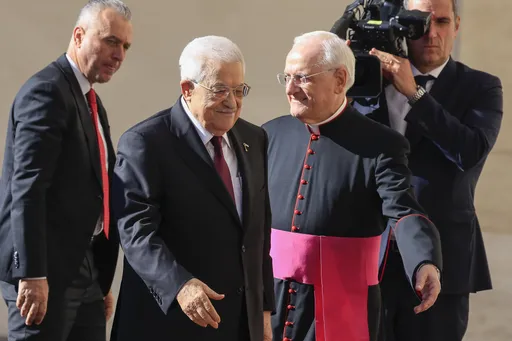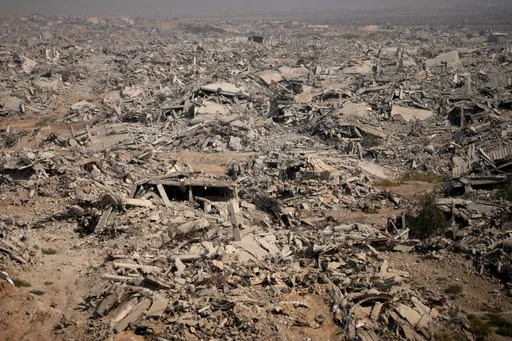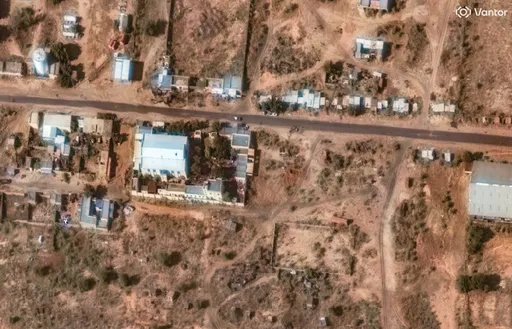Sana Ali has been voting for Democratic presidential candidates her entire adult life. But United States Vice President Kamala Harris won't be getting her support in November. Instead, the 38-year-old physician, who is based in Michigan, said she will be voting for Jill Stein of the Green Party.
Similarly, Jay J., a Georgia-based IT professional and self-described "MAGA Republican," is torn between supporting Stein or former US President Donald Trump on Election Day.
"I was definitely going to vote for Trump, but it seems like he is being influenced by a lot of Zionist interests. That's the big hangup for me," said the 44-year-old, who asked to use only his first name.
Both Ali and Jay are Muslim American voters who have grown disillusioned with the US's two-party system. Much of their dissatisfaction stems from how the US has been handling Israel's war on Gaza, though that's not the only issue taking them to the polls.
"Climate change, economy, healthcare, social security, abortion, freedom of speech, Islamophobia, border control - everything that is a hot topic issue, I feel like the Green Party is a safer way forward," Ali told TRT World.
Jay on the other hand said "I might vote for Jill Stein, even though I pretty much disagree with her on every subject besides Gaza. It's a protest vote at this point. It gets counted in some ledger, with this percentage of people saying 'none of the above.'"
Thinking of Gaza
Some four to seven million Muslims live in the US, which is less than two percent of the American population. But they are very civically engaged. According to new figures from the Institute of Social Policy and Understanding (ISPU), 81 percent of Muslim Americans are registered to vote, up from 60 percent in 2016.
And many live in key swing states such as Georgia and Michigan, where the 2020 election was decided by razor-thin margins. At that time, US President Joe Biden overwhelmingly won the Muslim vote, garnering nearly 70 percent of their support.
I count myself as America first, but (Trump) didn't build a wall, he didn't stop immigration, he didn't bring jobs to the midwest. It was Israel first, America last.
But Muslim backing of Democrats has fallen sharply since the Israeli war in Gaza began in October, after seeing "a plausible genocide livestreamed to (their) phones for months on end," said Youssef Chouhoud, an associate political science professor in Virginia who studies Muslim American voting trends.
"American Muslims care about a lot of issues. To the extent that one towers above all the other issues - it is Gaza. and that is primarily what's driving their electoral behaviour this cycle," he told TRT World.
This is certainly the case for Jay, who voted for Trump in 2020.
"I count myself as America first, but (Trump) didn't build a wall, he didn't stop immigration, he didn't bring jobs to the midwest. It was Israel first, America last."
Harris's campaign has said she is working "around the clock" to secure a ceasefire deal in Gaza. However, the US continues to spend billions of dollars in taxpayer money to send aid to Israel.
"I think American Muslims are just kind of thinking to themselves, 'do we matter?' It doesn't seem like the lives of Muslims are mattering as much as the lives of others. I think that's what is animating a lot of political activity," Chouhoud said.
US funding of Israel's violence in Gaza, the occupied West Bank and now Lebanon have caused Muslims to reach a breaking point, he added.
"If my one issue is that I'm against genocide, I think a lot of Muslims are fine being labeled as one-issue voters," he said.
After Harris failed to make any substantive policy promises about Gaza, the Uncommitted National Movement said earlier this month that it would not back her candidacy. But it also said it opposes Trump and didn't recommend voting for a third party.
A group of influential Muslim American scholars and imams took a slightly different position. They called on voters to reject Harris and Trump at the polls and instead vote third-party - whether that be for Stein, Dr Cornel West, the Party for Socialism and Liberation's Claudia De la Cruz, or the Libertarian Party's Chase Oliver.
Signatories included Imam Dawud Walid, Dr Shadee Elmasry, Imam Omar Suleiman, Dr Yasir Qadhi, and Imam Tom Facchine.
Speaking to TRT World recently about political indifference toward Gaza, Suleiman, a Palestinian American, said, "America sees what happens to it, not what it does. (It sees) what happens to a very specific part of it and not to the whole of it. And we've never been a part of America."
However, Emgage Action, one of the country's largest Muslim American voter mobilisation groups, recently endorsed Harris. The DC-based organisation said in a statement that it made the "excruciatingly difficult" decision to prevent "a return to Islamophobic and other harmful policies under a Trump administration."
The long view
Sam F., an engineer in Georgia who voted for Biden in 2020, has heard all the arguments for and against supporting Harris. And for the first time in his life, he'll be voting for a third party candidate.
The 62-year-old of Lebanese descent said that over the past 10 or 15 years, the choices for president have only gotten worse.
"The Democrats are becoming more and more liberal, the Republicans are becoming more and more conservative. We have two choices between two people who don't care much about what we think or the role we can play," he said.
"If we don't start creating space for a third party to play a bigger role, we're going to regret it in four years, or eight years."
It's not my problem that Harris cannot differentiate herself from a convicted felon in Georgia.
Sam also bristled at the idea that casting a vote for a third party candidate would be akin to supporting Trump.
"It's not my problem that Harris cannot differentiate herself from a convicted felon in Georgia," he said.
"I believe that a lot of Republicans who held their nose and voted for Trump because they didn't like Hillary (Clinton) may also be voting third party because they are disgusted with what their party has ended up being," he added.
"I have to stick to my moral and ethical values as a Muslim. Relative to being accountable for my eternity, I feel down deep in my bones that I have to vote to continue to have any voice in changing the system."
Masud Hossain also plans to vote, but still doesn't know for whom. The Michigan-based engineer of Bengali origin became a US citizen three years ago, and this will be his first chance to participate in a presidential election.
Referencing Trump and Harris, he said, "I am not excited at all for November. I'm quite depressed. This country has 330 million people and out of that we have these two choices?"
Hossain added that he is considering voting for Stein, but is concerned about her record on Syria. However, Gaza is also top of mind. "Action speaks louder than words. Biden and (Harris) are actively part of the genocide, but Jill Stein was not," he said.
He and his family are also worried about rising costs and "inappropriate" classroom textbooks, as well as rising anti-Muslim prejudice.
Thought experiments
Indeed, an April survey from Pew Research found that a majority of Muslim Americans (70 percent) said discrimination against Muslims in society has increased since the start of the war.
"There is existing Islamophobia which is widespread after Gaza. And the Democrats aren't doing much about it," Hossain said.
Whether this changes in the coming months remains to be seen. As Hossain and others mull who to vote for in November, Chouhoud, the professor who tracks Muslim American voting patterns, offers some advice.
"What is useful in these situations is thought experiments. Do you feel like there's a better chance that the Palestinians find some solace, some peace, some justice under a Harris presidency rather than a Trump presidency? I think that's an important question to ask yourself."
He added, "the next question is, do you think that you would be able to move that policy in a stronger direction if there is a significant showing for a third-party vote this election cycle?"
Chouhoud concluded, "The other calculation is if you live in a battleground state. There's genuinely no perfect candidate. You have to take the good with the bad sometimes."








